Bali travel tips: The ultimate cheat sheet
Scroll down for tips to plan your trip, explore Bali, stay healthy + more
This article includes all you need to craft your perfect holiday
Hot topics Bali Belly, toilet paper, driving license, where to stay, money + more
A little travel planning will make your Bali holiday awesome! (Digital art: Simon)
Table of Contents Show
Bali travel tips for first-timers
Are you a first-timer planning a trip to Bali? Are you overwhelmed by the amount of information out there?
This guide will be a bonanza for your trip and itinerary planning.
Bali travel hacks
Hi, I’m Simon, and I have been traveling to Bali for over 25 years. I have heaps of Bali travel hacks, and I’m going to share them all with you in this article.
I’ve researched everything, from the best apps for Bali to the availability of toilet paper and even whether it's safe to drink cocktails in Bali—all the best Bali travel hacks to get you to Bali and back safely.
Bali travel tips 2023
These Bali travel tips are as up-to-date as possible. Lots of things changed in 2023, including visas, driver’s license requirements, the new tourist tax for 2024, and more!
Bali travel requirements Covid
You are no longer required to show a vaccination certificate on arrival to gain entry to Bali, Indonesia (Sources: IATA, Indonesian Government).
Bali travel guide for couples, solo travelers, families and groups
I have done 25+ trips to Bali - I have come solo, with my partner (our first romantic holiday together was Bali!), with my mother and in-laws, with our nieces, and as an LGBTQ++ traveler, so I think I’ve got a wide perspective.
By the way, if you are still on the fence about Bali, read why Bali is worth visiting
But if you’re onboard and just want all the facts, let’s go!
1. Preparing for Your Trip to Bali
Our guide will make planning your trip easy (Digital art: Simon)
Before embarking on your memorable trip to Bali, it's essential to be prepared. Start by understanding the visa requirements and ensuring you have all the necessary vaccinations. Don't forget to check if you need travel health insurance and make sure to pack all the essentials for a comfortable stay in Bali.
1.1 Where is Bali located?
Bali is an island nestled among the Indonesian archipelago in Southeast Asia, positioned just over two kilometers from the eastern tip of Java.
Bali is one of more than 17,000 islands that make up Indonesia.
Bali is close to the Equator, so it has tropical weather year-round.
Discover more: Where Bali is located | Is Bali an island | Where in Asia is Bali
1.2 Understanding visa requirements for Bali
It's essential to be aware of the visa requirements before traveling to Bali.
Firstly, citizens of many countries, including the US, are eligible for a Visa On Arrival, giving you a 30-day stay. You can extend this for another 30 days for an additional cost.
Your passport must remain valid for at least another six months from the day you enter Bali.
While planning your trip, check regularly for any updates on visa regulations, as they can change frequently. I recommend the reliable website welcomebacktobali.com
Discover more: Our detailed guide to Bali Visa On Arrival and a more detailed article on Bali travel visas for those who might want or need a different visa type.
Take care: Be very careful about buying a visa online; there are lots of Bali online visa scam websites out there. Our articles only link to the official Indonesian government website and reputable agents so you can trust these sites.
1.3 Bali tourist tax
From 2024, foreign tourists visiting Bali will have to pay a US$10 fee as part of efforts to preserve the island's culture and environment. The levy, equivalent to 150,000 rupiah, will be collected electronically upon entry into Bali from abroad or other parts of Indonesia and is on top of any applicable VISA fee.
Discover more: Proposed Bali tourist tax from 2024
1.4 Making a budget for Bali
How much is a trip to Bali in US dollars? This is a great question, so check that link for our series of Money and Currency travel tips, like how much you should allow per day, per week, and much more.
1.5 Flights to Bali
Bali from the air - the flight itself can be a highlight (Digital art: Simon)
Booking a flight to Bali is quite straightforward. Numerous airlines operate regular services from major international hubs, making it possible to find direct and affordable flights.
Over the years, there's been a price hike but, compared to Europe and America, fares still remain relatively budget-friendly. The peak season typically sees an influx of travelers, resulting in an increase in prices.
For cheaper options, consider traveling during off-peak periods or booking well in advance for better deals and fewer crowded flights.
Discover more: For finding cheap Bali flights, I recommend using Skyscanner and also checking out WayAway for cashback on flights (and read my detailed article on WayAway and how you can get cashback on flights)
1.6 Essential vaccinations
Exploring Bali is an incredible adventure, but it's vital to be prepared and stay healthy. That said, here are the immunizations the CDC recommends and those it is wise to have:
Hepatitis A: It often spreads through food or water contaminated by an infected person.
Typhoid: Like hepatitis, typhoid can also spread through contaminated food and water.
Tetanus: This vaccine is essential because you might get wounded or injured during your adventures.
Measles, Mumps, and Rubella (MMR): As these diseases are highly contagious, a vaccination protects not only you but also the people around you.
Hepatitis B: If you're planning on staying longer in Bali or engaging in high-risk activities like water rafting or mountain climbing where injuries may occur, this vaccine becomes even more crucial.
Japanese Encephalitis: If your travels will take you outdoors for extended periods, particularly in rural areas, consider this vaccine.
Discover more: Centre for Disease Control (CDC) recommendations for Indonesia
1.7 Travel health insurance
Travel insurance is a must for Bali. If you are undecided, read our detailed article about Bali travel insurance and why it’s so important.
Discover more: With basic coverage averaging just a few dollars per day, enjoy peace of mind with a plan from Heymondo, SafetyWing or Travel Insurance Master, one of the biggest names in travel insurance.
1.8 Packing essentials for Bali
What to pack in your bag of tricks for Bali? (Digital art: Simon)
When preparing for your trip to Bali, it's important to pack the right essentials to ensure a comfortable and enjoyable experience.
Discover more: Head to the ultimate guide to What to Pack for Bali and get your FREE downloadable Packing List - I have some important tips and tricks for Bali packing!
But just to get you started, here are some must-have items to include in your suitcase:
Sunscreen: Protect your skin from the tropical sun with a high SPF sunscreen. Look for brands like Blue Lizard Australian Sensitive Sunscreen SPF 30 or Juice Beauty SPF 30 Sport Moisturizer.
Bug spray: Keep those pesky mosquitoes at bay by packing a reliable bug spray. Make sure it contains DEET for maximum effectiveness.
Reusable water bottle: Stay hydrated throughout your trip by carrying a reusable water bottle with a built-in filter.
Prescription medications: If you take any prescription medications, be sure to bring enough for the duration of your stay. It's also a good idea to carry a copy of your prescriptions, just in case.
Lightweight clothing: Bali's tropical climate calls for lightweight and breathable clothing. Pack comfortable clothes made from natural fabrics like cotton or linen.
Swimwear: With its pristine beaches and stunning pools, Bali is perfect for swimming and lounging by the water. Don't forget to pack your favorite swimsuit!
Versatile footwear: Bring a pair of comfortable walking shoes or sandals for exploring Bali's attractions on foot, as well as flip-flops for beach days and relaxing by the pool.
Travel adapter: Bali uses Type C and F power outlets, so make sure to bring a travel adapter if your devices have different plug types.
Travel documents: Don't forget to bring essential travel documents such as your passport (valid for at least 6 months), visa (if required), flight tickets, and hotel reservations.
Cash and cards: While credit cards are widely accepted in tourist areas, it's always handy to carry some cash for small purchases and places that only accept cash.
1.9 Laundry in Bali
Bali has laundry services on every street—it’s a popular home-based business! Bear that in mind when you pack, because you can wash often, which means you need to pack less.
2. Essential Things to Know for Bali
Before the dazzle comes the planning for a Bali trip (Digital art: Simon)
When planning your trip to Bali, it's important to consider the best time to visit, understand the local currency and tipping culture, and prepare for the weather conditions.
2.1 The Best time to visit Bali
The best time to visit Bali is between May and September. During this period, Bali experiences its dry season, which provides ideal weather for outdoor activities such as exploring the pristine beaches and volcanic jungles.
The rainy season in Bali occurs from November to March but it is usually short-lived and shouldn't deter visitors.
Discover more: This is a BIG topic, and I cover all the facts, options, in our these articles:
2.2 Understanding Bali's currency and tipping culture
The official currency used in Bali is the Indonesian Rupiah (IDR). It is recommended to have some cash on hand for small purchases and tipping.
Tipping is not mandatory in Bali but leaving a tip of around 10% of the bill is appreciated for good service in restaurants, hotels, and other service industries. Keep in mind that some places may already include a service charge in the bill so you don’t need to add on top of that.
If paying with a credit card, be sure to check for any additional fees or conversion rates that may apply. Some restaurants and supermarkets will add a fee, but the staff are generally careful to let you know before processing to give you a chance to pay cash if you want.
Discover more: We have comprehensive articles to help you:
2.3 Exchanging money
Avoid the little booths on the street with great exchange rates - they are scam central. My tip is only change money at a money exchanger with air conditioning. Seriously, the authorized money changers do not charge commission and have better offices with AC. Simple test, no sads!
Discover more: I use and recommend the best chain of money exchangers in Bali here (no incentive given, I have just used them multiple times with no problems).
2.4 Preparing for Bali's weather
A bit of rain, lots of sun, always hot, Bali is predictable most of the time! (Digital art: Simon)
Bali's weather is tropical, which means it can get quite hot and humid. It's important to pack appropriate clothing for the climate. Lightweight, breathable fabrics like cotton and linen are ideal to keep you cool during the day.
Don't forget to bring a hat, sunglasses, and sunscreen with a high SPF to protect yourself from the intense sun exposure. Additionally, Bali is known for its occasional rainfall, especially during the rainy season from November to March.
Consider packing a lightweight waterproof jacket or poncho in case of sudden showers. Staying hydrated is also essential in Bali's tropical climate, so make sure to drink plenty of water throughout your trip.
It would be wise to pack mosquito repellent as well due to the risk of mosquito-borne diseases such as dengue fever.
Discover more: Our feature article on Bali Weather and Weatherspark for Bali
2.5 Will my phone work in Bali?
Maybe—It depends on your phone company, so check with your provider. If you don’t have service in Bali, you can buy a local SIM card.
2.6 What plug do they use in Bali?
The powerpoints used in Bali are Type C and Type F. Type C powerpoints have two round pins, while Type F has two round pins with two earth clips on the side. Tip: The cheapest place to buy international adaptors is Bali, where supermarkets sell them for $1 to $3.
Discover more: What plug do they use in Bali and Do Bali power outlets use European plugs
2.7 Alcohol
Alcohol is expensive in Bali (due to high tax), except for beer, which is reasonable. So BYO duty free - you are allowed 1 liter per adult.
3. Exploring Bali
To explore Bali’s special places, you’ll need a car and driver (Digital art: Simon)
Experience the beauty of Bali by hiring a private driver or renting a scooter for convenient and flexible transportation. Discover the best travel maps to use and download helpful apps to enhance your exploration of this stunning island paradise.
3.1 Can you hire a car and driver online in Bali?
Yes, it's the safest way to ensure you hire a reputable driver who has a license and is insured. Don't rent off social media; you don't know who you will really get or whether they will turn up.
Discover more: I recommend you hire a trusted private driver on Viator for great rates.
3.2 Can you hire a female driver and guide in Bali?
Yes, there are a few female drivers and guides in Bali - but they are hard to find. So, I have written a guide with contact details for the best female tour guides in Bali
3.3 Can you rent a car or motorcycle in Bali?
Always have travel insurance, especially if you rent a motorcycle (Digital art: Simon)
Yes, you can hire cars and motorcycles in Bali. You absolutely must have Bali travel insurance because if you have an accident, you will be held fully liable, even if it is not your fault. You will become the payday, so you must have insurance to protect you. Add to that the cost of medical care is very high for foreigners in Bali.
3.4 Do I need to have an International Drivers Licence (IDL/IDP)?
Yes, new 2023 laws (since the video at the top of this article) require you to have an International Drivers License or Permit (IDP/IDL) for Bali for both car and motorcycle rental.
Discover more: You can get an IDL online here.
3.5 Does Bali have day tours?
Yes, Bali has over 2,800 different day tours you can do, from adventure and culture to indulgence and wellness.
Discover more: The range of Bali day tours is incredible, and we cover them all on Baligram.me.
3.6 What travel maps should I use for Bali?
We have a great collection of maps to help you navigate the different regions and attractions of the island.
Discover more: Our free set of Best Bali Google Maps which we have created to help you plan your Bali day tour itinerary.
We also recommend the Google Maps app, which provides detailed directions and real-time traffic information.
Additionally, there are physical maps available at tourist information centers and hotels in Bali. These maps often highlight key landmarks, beaches, temples, and other points of interest to get you from place to place easily.
3.7 Download helpful apps for Bali
I highly recommend using helpful apps during your trip to Bali. These apps can enhance your experience and make navigating the island much easier.
Discover more: Check out our detailed guide to the best apps to download for Bali.
Here are some essential apps to download:
WhatsApp: This messaging app is widely used in Bali and will allow you to stay connected with locals and fellow travelers.
Google Maps: A reliable navigation app that will help you find your way around the island, locate attractions, and plan your routes.
Grab Cab service: Similar to Uber or Lyft (neither of which work in Bali), Grab is a popular ride-hailing app in Bali. It's convenient for getting around, especially if you don't want to rent a scooter or hire a private driver. Only ever pay for your Grab via the app; never give cash to the driver (a scam), and cancel the trip if you get a message saying your driver is being substituted. Grab App - iOS | Android
Gojek Scooter Service: Gojek is the go-to for scooter rides in Bali. Go-Jek App - iOS | Android
Google Translate app: This app will come in handy for translating signs or having basic conversations with locals.
Currency exchange rate app: To ensure you're getting a fair exchange rate when converting money, use an app that provides real-time currency rates.
4. Health and Safety Tips for Bali
Sort the health and safety tips for a relaxed holiday (Digital art: Simon)
Stay safe while enjoying your time in Bali with these essential health and safety tips.
4.1 Water safety
Water safety is an important consideration for travelers in Bali. It is crucial to remember that the tap water in Bali is not safe to drink, as it may be contaminated and can lead to stomach issues commonly known as "Bali belly."
You’ll want to buy or boil your water, and it's important to make sure you stay hydrated. One option is to use a reusable water bottle with a built-in filter, which saves on plastic bottle waste (a big issue in Bali). However, I still boil water and do not just rely on a filter.
Discover more: Is Bali water safe to drink?
4.2 Animal safety
When it comes to animal safety, it's crucial to exercise caution, as Bali is home to stray dogs and monkeys that are considered wild animals. I know there are lots of cute photos of people hugging monkeys, but I would not do it myself.
Being aware of their presence and maintaining a safe distance can help prevent any potential incidents or bites. Remember to avoid feeding or provoking these animals, as it may lead to aggressive behavior.
4.3 Is identity theft and malware a problem in Bali?
Yes, if you use the internet or receive SMS in Bali, you need to be very careful of identity theft, online scams, and malware.
Discover more: Check out our comprehensive guide on how to protect your digital identity in Bali and get Surfshark or NordVPN protection.
4.4 Road safety: Cars & scooters
Driving in Bali can be quite challenging, especially for those who are not used to the chaotic traffic and narrow roads. It is important to exercise caution and follow road safety rules when driving cars or scooters on the island.
Make sure you have a valid driver's license as well as an International Drivers License (IDL), wear a helmet if riding a scooter, and always stay alert while on the road. Keep in mind that traffic can be heavy at times, so it's best to plan your routes accordingly and leave plenty of time for travel.
Additionally, be aware that there may be some reckless drivers on the road, so it's important to stay focused and defensive while driving in Bali.
4.5 Personal safety
It’s generally safe to drink cocktails in Bali, however, drink spiking and methanol in drinks are problems in Bali, so never accept a drink you did not see poured or a beer bottle not opened in front of you. This applies more to bars and nightclubs than restaurants.
Keep your valuables close to you (a money belt is a good idea). Lock hotel doors and windows and use the room safe.
If you are traveling solo, share your movements with a fellow traveler just so you have a buddy system in place.
Discover more: UK Foreign Office travel advice
4.6 Dealing with Bali belly
I’ve had Bali Belly myself more than once, and I have written a comprehensive guides:
Bali Belly: what it is, what causes it, the symptoms, the vaccine against it and more
What to do when you get Bali Belly (including a shopping list of remedies!)
To deal with Bali Belly, it's important to take precautions and be mindful of what you eat and drink. Avoid tap water in Bali, as it is not filtered and can lead to illness. Stick to bottled water or use a travel water purifier.
Additionally, be cautious about the food you consume. Opt for well-cooked meals from reputable establishments and avoid eating raw or undercooked foods, street food vendors, and unpeeled fruits or vegetables that may have been washed in tap water.
If you do experience symptoms such as diarrhea or stomach cramps, stay hydrated by drinking plenty of fluids and consider taking over-the-counter medications like Imodium to alleviate discomfort.
4.7 Does Bali use toilet paper?
Yes, in many places, but not all! The best advice is to always carry toilet paper with you. Bring plastic bags to dispose of used paper in a bin, rather than flushing it to avoid clogging Bali’s (often) homemade sanitation systems.
Discover more: Does Bali use toilet paper (with emergency map where to buy toilet paper!)
4.8 Earthquakes and volcanoes
Bali has regular small rumbles from its volcanoes, and earthquakes are possible. Always be mindful of a route of escape—away from the water’s edge and up high, outside of rickety buildings if you can, in a hotel bathroom (strong) if you are caught in your room. Get travel insurance because the last eruption stranded tourists and you need insurance to cover hotel overstay and flight delays.
Discover more: Red Cross: What to do in case of earthquake
4.9 Does Bali require the COVID vaccination?
No. Bali no longer requires tourists to show a vaccination certificate on arrival.
Discover more: Indonesia Lifts All Covid-19 Travel Restrictions, Including Mandatory Vaccination, Sources: IATA, Indonesian Government.
5. Accommodation in Bali
Accommodation in Bali runs from budget to luxe (Digital art: Simon)
Choosing the right accommodation can greatly enhance your experience in Bali. From luxurious resorts to budget-friendly guesthouses, there are options for every traveler. Whether you prefer the peaceful countryside of Ubud or the vibrant beaches of Seminyak, finding a comfortable place to stay is essential for a memorable trip.
For Bali hotels and villas, Booking.com and Agoda.com are the two best choices for the biggest selection at the most competitive rates.
If you’re considering a Bali Airbnb, don’t forget to check VRBO, which is often cheaper than Airbnb (Airbnb’s traveler booking fee is crazy, and they also charge owners a high fee too, so owners just add that to the rate!).
5.1 The best areas to stay in Bali
Choosing where to stay in Bali is a big decision because accommodation is the biggest cost, along with flights. That’s why I have written a Feature Article just on this topic:
Discover more: The Best Areas To Stay In Bali
5.2 Recommended places to stay
Read on to discover a quick summary of recommended places to stay and tips for deciding on the duration of your stay at each location.
When planning your trip to Bali, it's important to consider the best places to stay. Here are some recommended options to get you started:
Ubud: Known for its lush green landscapes and rice terraces, Ubud is a popular choice for travelers seeking a tranquil retreat. There are plenty of boutique hotels and wellness resorts to choose from.
Nusa Islands: Comprising of three beautiful islands - Nusa Lembongan, Nusa Penida, and Nusa Ceningan - the Nusa Islands offer stunning beaches, crystal-clear waters, and incredible diving spots. You'll find a range of accommodations from budget-friendly guesthouses to luxury beachfront villas.
Seminyak: If you're looking for a vibrant beach destination with trendy bars, upscale restaurants, and fashionable boutiques, Seminyak is the place to be. This area offers luxurious resorts and stylish villas just steps away from the beach.
Uluwatu: Situated on the southern coast of Bali, Uluwatu is known for its dramatic cliffs and world-class surf breaks. It's a great place for both relaxation and adventure. You can choose from cliffside resorts or private villas with breathtaking ocean views.
Canggu: A hipster's paradise, Canggu offers a laid-back atmosphere with a mix of trendy cafes, surf shops, and yoga studios. There are plenty of accommodation options including cozy guesthouses and boutique hotels nestled among rice fields.
Kuta: As one of Bali's most famous tourist destinations, Kuta offers a vibrant nightlife scene along with an array of shopping malls and street markets. There are numerous budget-friendly hotels and hostels available in this area.
5.3 Deciding on the duration of stay at each place
I recommend spending 2-5 days in Ubud, the cultural heart of Bali. This will give you enough time to explore the lush rice terraces, visit sacred temples, and immerse yourself in Balinese art and dance.
If you're looking for a more relaxed beach getaway, I suggest staying in the Nusa Islands for 2-4 days. These stunning islands offer pristine beaches and crystal-clear waters, perfect for snorkeling or diving.
Finally, Seminyak is a great place to base yourself for 2-4 days before venturing out to other areas like Uluwatu and Canggu. Seminyak offers a vibrant nightlife scene and plenty of trendy cafes and boutiques to explore.
6. Bali's Food and Drink Culture
The food and drink culture in Bali is incredible (Digital art: Simon)
Experience the vibrant flavors and unique food culture of Bali, from traditional Warungs to trendy cafes and beachside bars. Discover the essential dos and don'ts of ordering local dishes, avoiding tourist traps, and indulging in authentic Balinese cuisine.
6.1 Essential dos and don'ts
When traveling to Bali, it is important to be aware of a few dos and don'ts in relation to food to stay safe:
‘Pedas’ means spicy/chilli hot. In a market stall, ask ‘Is this spicy’ in Bahasa: ‘Apakah ini pedas?’. Not to be confused with ‘Panas’ that just means warm.
Respect local customs if you are invited to a Balinese home for a meal. Dress modestly and cover your shoulders and knees.
Try the local cuisine at traditional warungs (small eateries). Tasteful dishes like nasi goreng (fried rice), satay skewers, and babi guling (roast pig) are all safe choices.
Do not drink tap water in Bali. Stick to bottled water or use a travel water purifier to avoid potential stomach issues.
Avoid giving food to monkeys in areas such as the Ubud Sacred Monkey Forest. Feeding them can lead to aggressive behavior.
6.2 Ordering food for delivery
Ordering food for delivery in Bali has become more expensive compared to five years ago. However, it is still more affordable than Europe and America. This convenient option allows you to enjoy a delicious meal right in the comfort of your accommodation without having to venture outside.
Whether you're craving traditional Balinese cuisine or international dishes, there are plenty of restaurants that offer delivery services. Just browse through the available menus on popular delivery apps like GoFood or utilize the websites of local eateries to place your order.
7. Avoiding Tourist Traps and Scams
Among the basketfuls of fun that Bali offers, there’s the odd trap or scam (Digital art: Simon)
As a popular destination, Bali has its fair share of scams and overpriced tourist attractions.
7.1 Does Bali have scams?
Yes, like all travel destinations, there are scams to be aware of in Bali.
7.2 Does Bali have tourist traps?
Yes, Bali does have tourist traps where prices are higher, the street sellers are more sticky and the pressure is on to vacuum dollars out of your pocket - but thankfully there’s not too much of that!
One key tip is to do your research beforehand and seek recommendations from local residents or trusted travel blogs. By doing so, you can discover hidden gems that are not as well-known but offer an authentic experience of the island.
Additionally, try exploring less crowded areas or visiting during off-peak times to avoid the crowds and high prices typically associated with popular tourist spots.
8. Shopping in Bali
Exploring Bali’s market is a shopping bonanza (Digital art: Simon)
When shopping in Bali, it is important to understand the correct price of things and be prepared to haggle for a better deal.
8.1 Understanding the correct price of things
Prices in Bali may have increased a little over the past few years, but they are still considerably more affordable compared to Europe and America. It's important to keep in mind that prices can vary depending on where you go and what you buy.
Bali offers a wide range of accommodation options, from luxurious 5-star resorts to budget-friendly hostels and homestays. Additionally, each region in Bali has its own price range, so it's essential to do some research before making any purchases.
By taking the time to understand the correct price of things, you'll be able to make informed decisions while shopping or dining in Bali without overspending.
Discover more: We look at why Bali is so cheap in detail.
8.2 Tips for haggle-free shopping
When shopping in Bali, use these tips to ensure a hassle-free experience:
Research the average price range for the item you want to purchase, so you know what a fair price is.
Start by offering a lower price than what they initially ask for. This allows room for negotiation.
Be friendly and polite during the bargaining process. Remember, it's part of the local culture to haggle.
Don't be afraid to walk away if the price doesn't meet your expectations. Often, the vendor will call you back with a better offer.
Consider purchasing multiple items from the same vendor to increase your chances of getting a discount.
If you're unsure about haggling, visit fixed-price stores or markets where bargaining is not common.
Keep small bills and change on hand, as some vendors may claim they don't have enough change and round up the prices.
Don't feel pressured to buy anything if you're not completely satisfied with the quality or price.
9. Understanding Bali's Public Transportation
To navigate around Bali, using ride-sharing apps like Grab or local taxi services is the most convenient and budget-friendly option.
9.1 Using ride-sharing apps
Ride-sharing apps like Grab and Gojek are popular choices for transportation in Bali.
One of the advantages of using ride-sharing apps is that it eliminates the need to negotiate prices with traditional taxi drivers, saving you time and potential stress.
Many drivers on these platforms speak English, making communication easier for tourists.
9.2 Dealing with the Bali taxi mafia
Bali's taxi mafia can make transportation challenging and potentially expensive. It is recommended to pre-book a car and driver from the airport to avoid dealing with them.
Hiring a private driver or using ride-hailing apps like Grab and Gojek are popular alternatives for getting around Bali. Visitors should be cautious of taxi drivers trying to poach customers for extra work.
10. Respecting Bali's Culture
Respecting local culture and customs is all part of the journey (Digital art: Simon)
When visiting Bali, it is important to respect the local culture by adhering to the dress code at temples, interacting respectfully with locals, and venturing off the beaten track to discover hidden gems.
10.1 Dress code at temples
Temples in Bali hold deep cultural and religious significance, so it's important to respect the dress code when visiting these sacred sites. To show reverence for Balinese culture, it is customary to cover your shoulders and wear a sarong or a long skirt. Some temples ask that long hair be tied back, so bring a scrunchie or similar. This applies to both men and women.
Additionally, visitors are expected to remove their shoes before entering the temple premises as a sign of humility. It's worth noting that women who are menstruating may not be allowed entry into temples, as they are considered spiritually impure during this time. That’s the local belief, and we just have to respect it.
Remember to be respectful by refraining from touching sacred objects or stepping on offerings while exploring these beautiful places of worship.
10.2 Interacting with locals
When visiting Bali, it is important to remember that the Balinese people are known for their friendliness and warmth towards tourists. Interacting with locals should be done with respect for their culture and customs.
Dressing modestly and covering up when visiting temples or attending religious ceremonies shows respect to the locals. Additionally, learning a few basic words and phrases in the local language can go a long way toward establishing rapport with the Balinese people.
Participating in local traditions and ceremonies can also provide a deeper understanding of Bali's vibrant culture. If you just ask, you will be amazed at how welcoming the Balinese are, inviting you to their home, their ceremonies, and their lives.
10.3 Venturing off the beaten track
Don’t worry, Bali is safe. Venturing off the beaten track in Bali allows you to discover hidden gems and experience a more authentic side of the island. Whether it's exploring remote villages, hiking through lush rice terraces, or discovering secret beaches, stepping away from the tourist hotspots can offer unique and memorable experiences.
By immersing yourself in local communities and embracing Bali's rich culture, you'll gain insight into the traditions and way of life that make this island so special.
Conclusion
Plan your trip to Bali with these essential travel tips for a memorable and hassle-free experience. From understanding visa requirements to staying safe and respecting the local culture, these tips will ensure you make the most of your time in this stunning Indonesian paradise.
You are going to have an awesome adventure!
FAQs
1. What are some essential Bali travel tips?
For a memorable trip to Bali, Indonesia, it's great to learn a little local culture before you arrive, keep an eye on safety in Bali, including water and animal safety, understand the Visa requirements and get a good packing list prepared.
2. Are there any specific health & safety precautions I should take when traveling to Bali?
Yes! Precautionary measures such as getting the appropriate travel vaccines, carrying sunscreen, bug spray and toilet paper, ensuring water safety and keeping hydrated are all essential.
3. How can I handle currency-related matters in Bali?
Bali uses IDR (Indonesian Rupiah), but USD, AUD and other currencies are also accepted at various places. Tipping is customary, so carry Rupiah cash for those transactions. Using foreign credit cards sparingly. You will get the best value if you change your currency at a reputable money changer in Bali and pay with cash.
4. What is the recommended mode of transport in Bali?
The safest, most enjoyable option is to hire a car and driver. You can hire a car or scooter and drive yourself, but be sure to have travel insurance and bring an international drivers license.
5. Is there a preferred network provider for mobile connectivity while traveling around Balinese islands?
Telkomsel and other providers sell tourist SIM Cards offering great coverage across all regions.



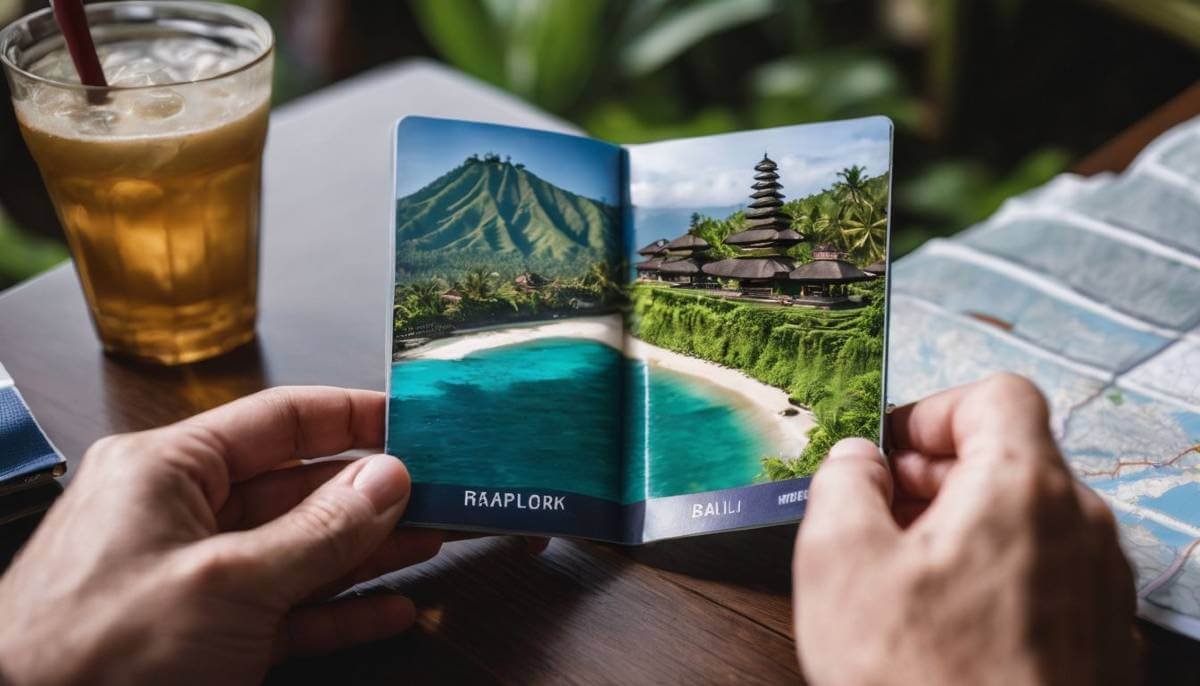

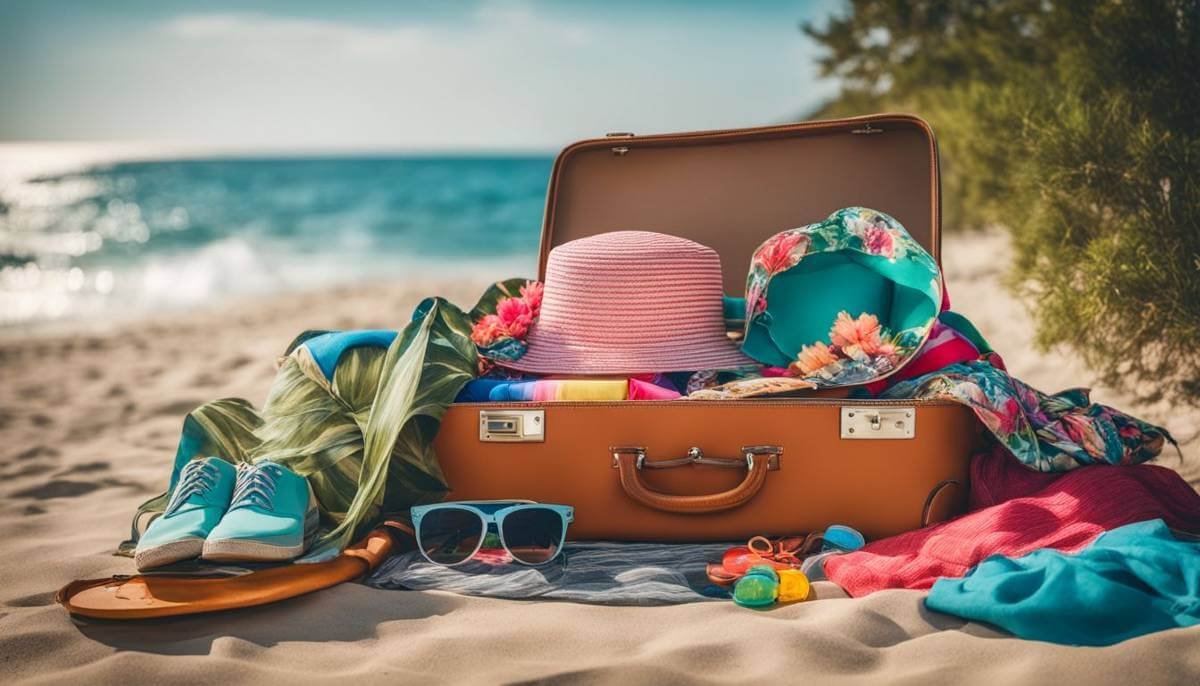

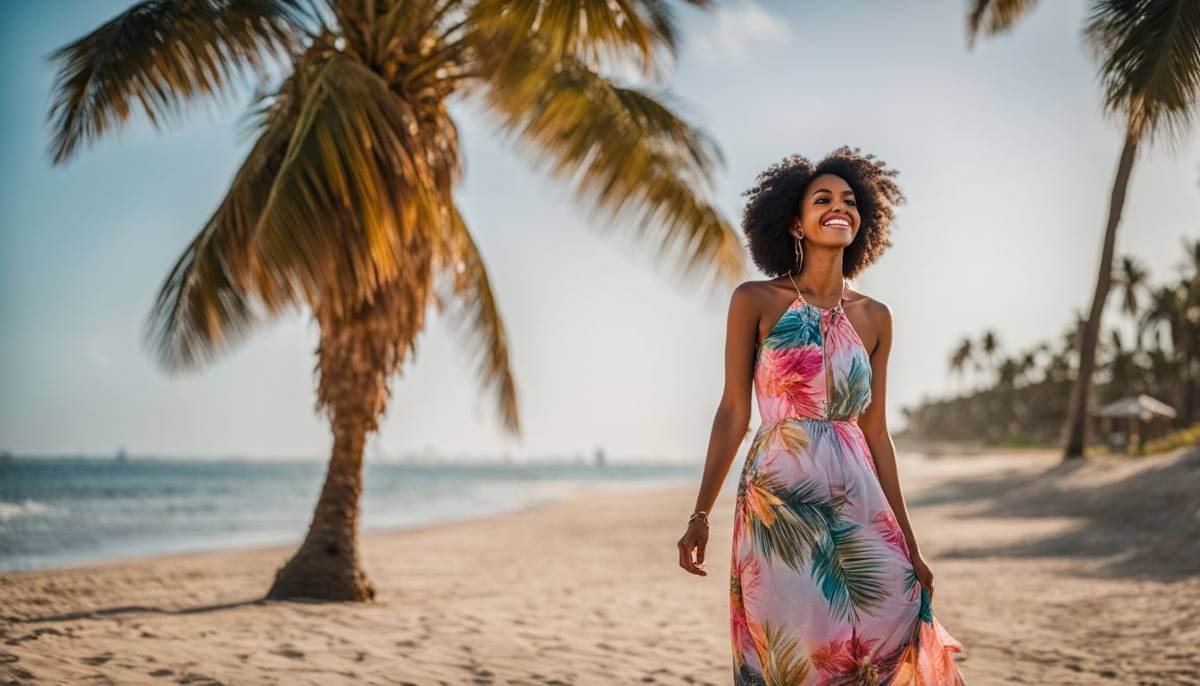

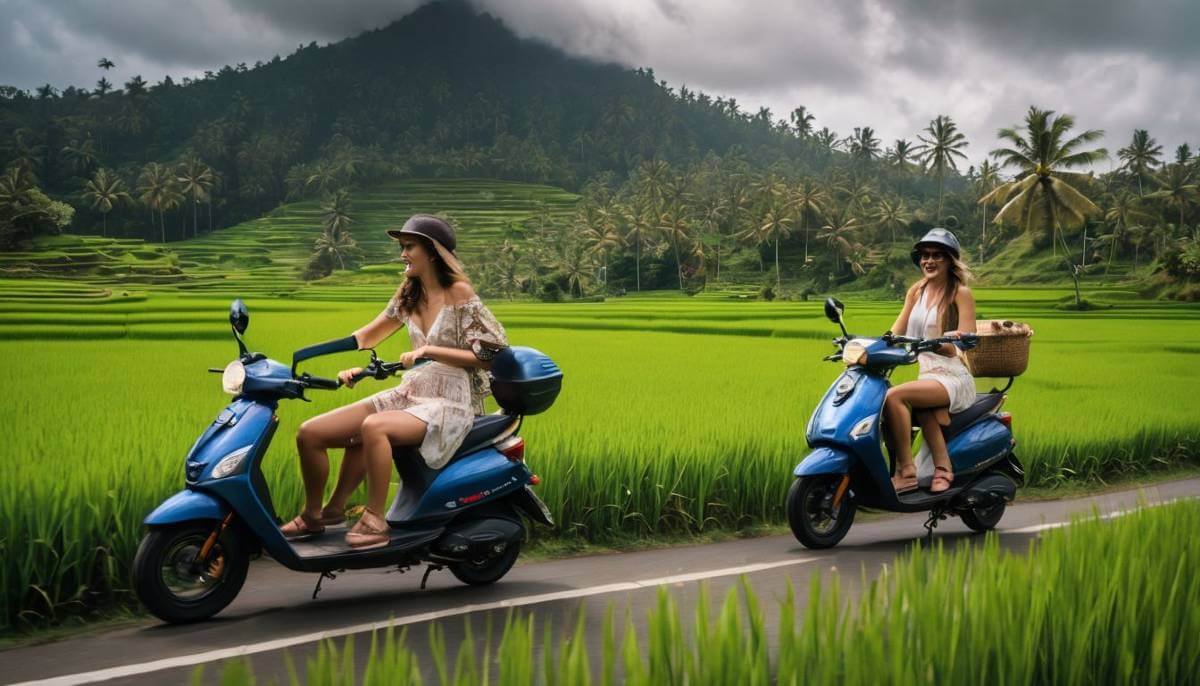








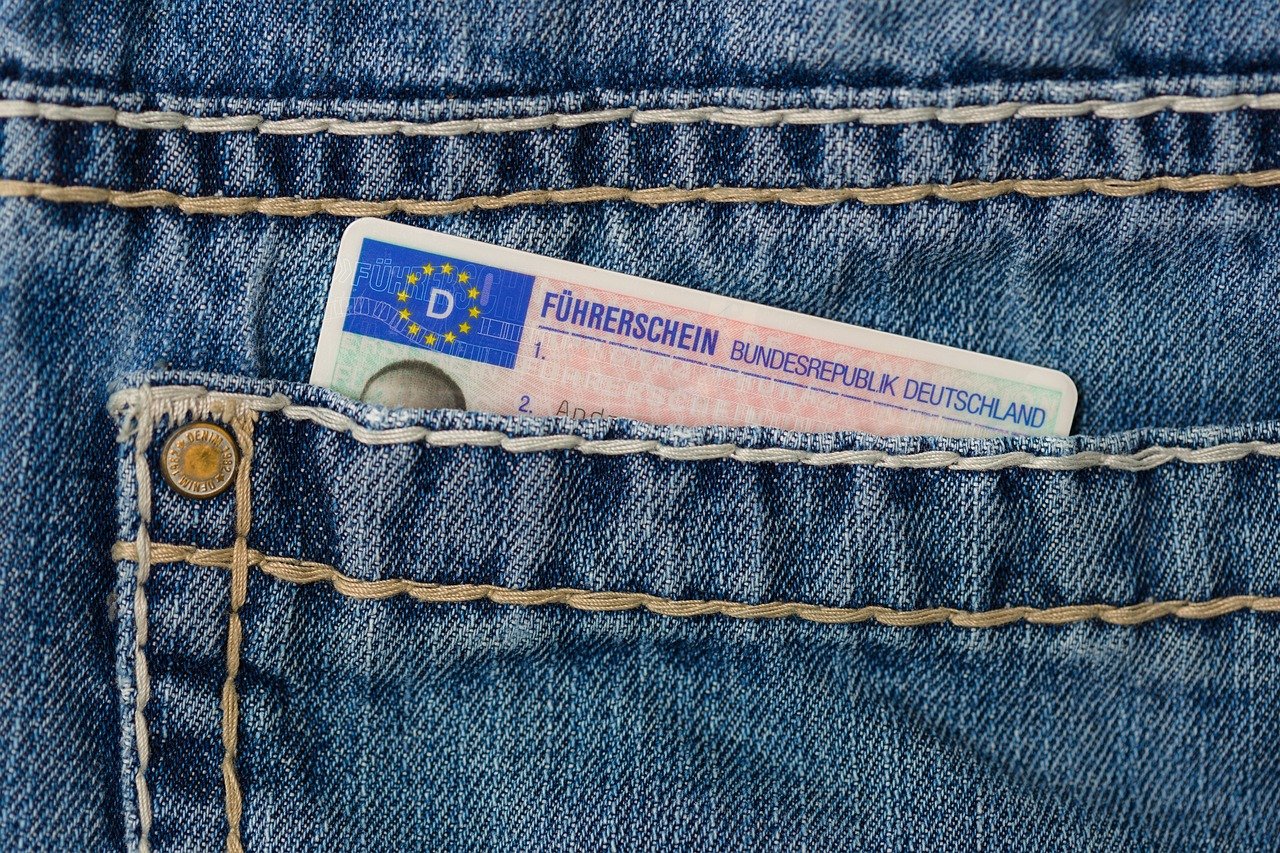




Discover everything you need to know about Bali's new tourism tax before your next visit to this tropical paradise.